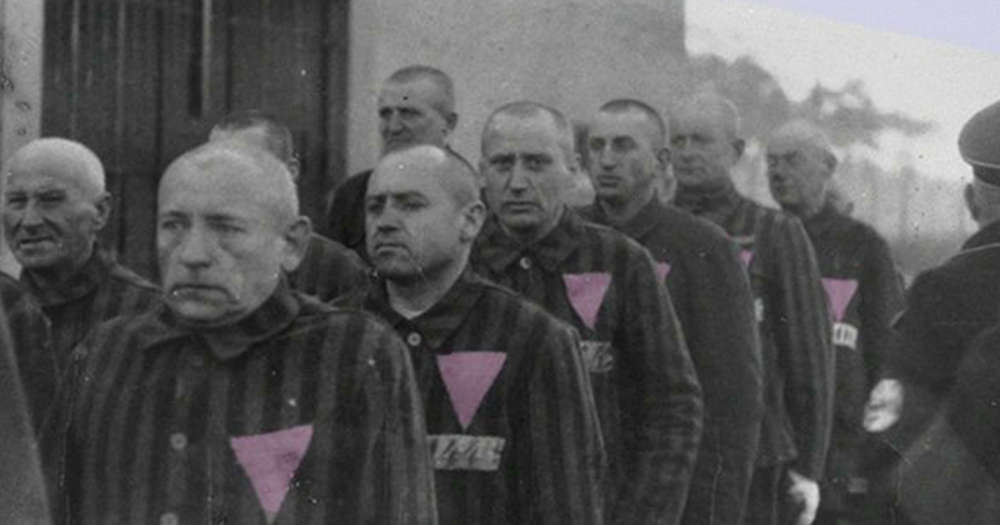For the first time in history, Germany’s annual Holocaust memorial ceremony, held on January 27, focused on LGBTQ+ people who were persecuted for their sexual and gender identities during this dark time in history.
Baerbel Bas, President of the Bundestag lower house said, “This group is important to me because it still suffers from discrimination and hostility”. She noted that while there are regrettably no known remaining LGBTQ+ survivors to address parliament, queer people still face persecution today.
As part of the ceremony, Klaus Schirdewahn, who was convicted under Nazi-era law that was still on the books in 1964 for having same-sex relations with another man, shared his story. Under German law, until five years ago, he legally held a criminal record. Schirdewahn was one of many victims of the Nazi regime to share their testimony.
Henny Engels of the Gay and Lesbian Rights Association said that Friday’s ceremony was important because it recognised, “the suffering and dignity of the victims who were imprisoned, tortured and murdered”.
We want to honor the LGBT+ that died with International Holocaust Remembrance Day. All homosexual prisoners wore the inverted pink triangle during the Nazi regime. There were over 100,000 executed in the death camps. Gad Beck, the last gay survivor of the holocaust, died in 2012. pic.twitter.com/kEtniFlaxz
— Pride Alliance (@OzPrideAlliance) January 27, 2021
Every year since 1996, MPs in the lower house of the German parliament hold a solemn ceremony in recognition of the anniversary of the liberation of the Auschwitz camp.
Traditionally, the memorial ceremony focuses on the 6 million Jewish victims of the Holocaust, but dedicated LGBTQ+ activists have worked for decades to recognise all victims and establish an official ceremony that honours those who were targeted for their sexual and gender identities.
Berlin had a thriving LGBTQ+ community before the Nazis came to power in 1935. Then, Nazis referenced Section 175 of Germany’s penal code which outlawed sex between men. They toughened the law and began sentencing gay men to 10 years of forced labour.
During the war, roughly 57,000 men were imprisoned, while between 6,000 and 10,000 were sent to concentration camps and given uniforms emblazoned with a pink triangle designating their sexuality.
Historians estimate that somewhere between 3,000 and 10,000 gay men died, and many were subjected to horrific so-called “medical experiments”. At the same time, thousands of lesbians, transgender people and sex workers were labeled as “degenerates” and imprisoned at the camps, but these experiences have been largely omitted from history books.
In 2017, German parliament finally voted to end the convictions of gay men who were sentenced for homosexuality under the Section 175 law, which continued to be enforced after the war.
In addition to the ceremony in parliament, commemorations will take place across the country and all over the world today.
On Holocaust Remembrance Day, the world remembers the millions who perished. This includes many LGBTQ+ people, persecuted under paragraph 175 of the German Criminal Code, which prohibited sexual acts between men. #WeRememberhttps://t.co/EHZF0RI5TT
— Gay Community News (@GCNmag) January 27, 2023
© 2023 GCN (Gay Community News). All rights reserved.
Support GCN
GCN is a free, vital resource for Ireland’s LGBTQ+ community since 1988.
GCN is a trading name of National LGBT Federation CLG, a registered charity - Charity Number: 20034580.
GCN relies on the generous support of the community and allies to sustain the crucial work that we do. Producing GCN is costly, and, in an industry which has been hugely impacted by rising costs, we need your support to help sustain and grow this vital resource.
Supporting GCN for as little as €1.99 per month will help us continue our work as Ireland’s free, independent LGBTQ+ media.

comments. Please sign in to comment.